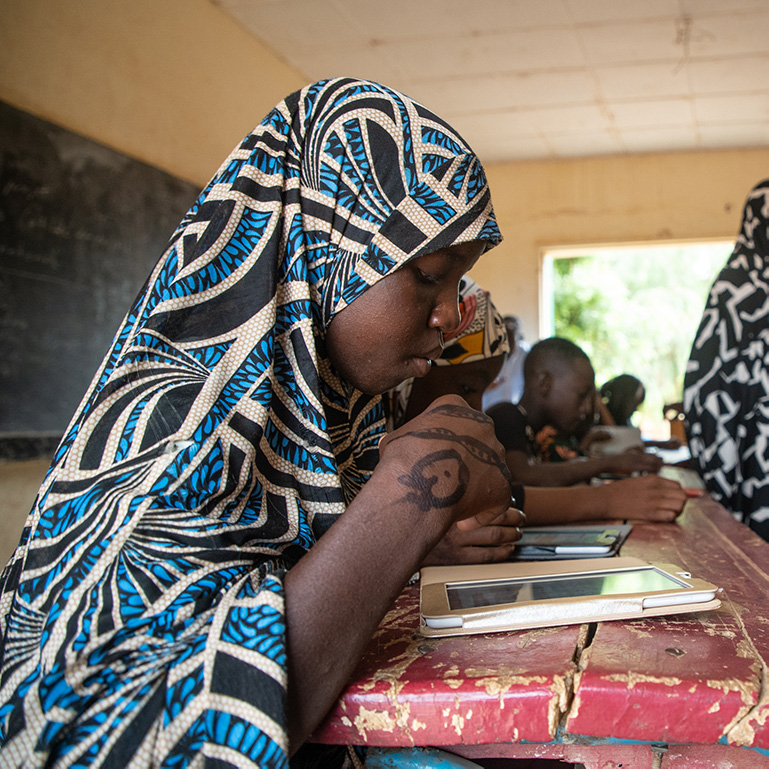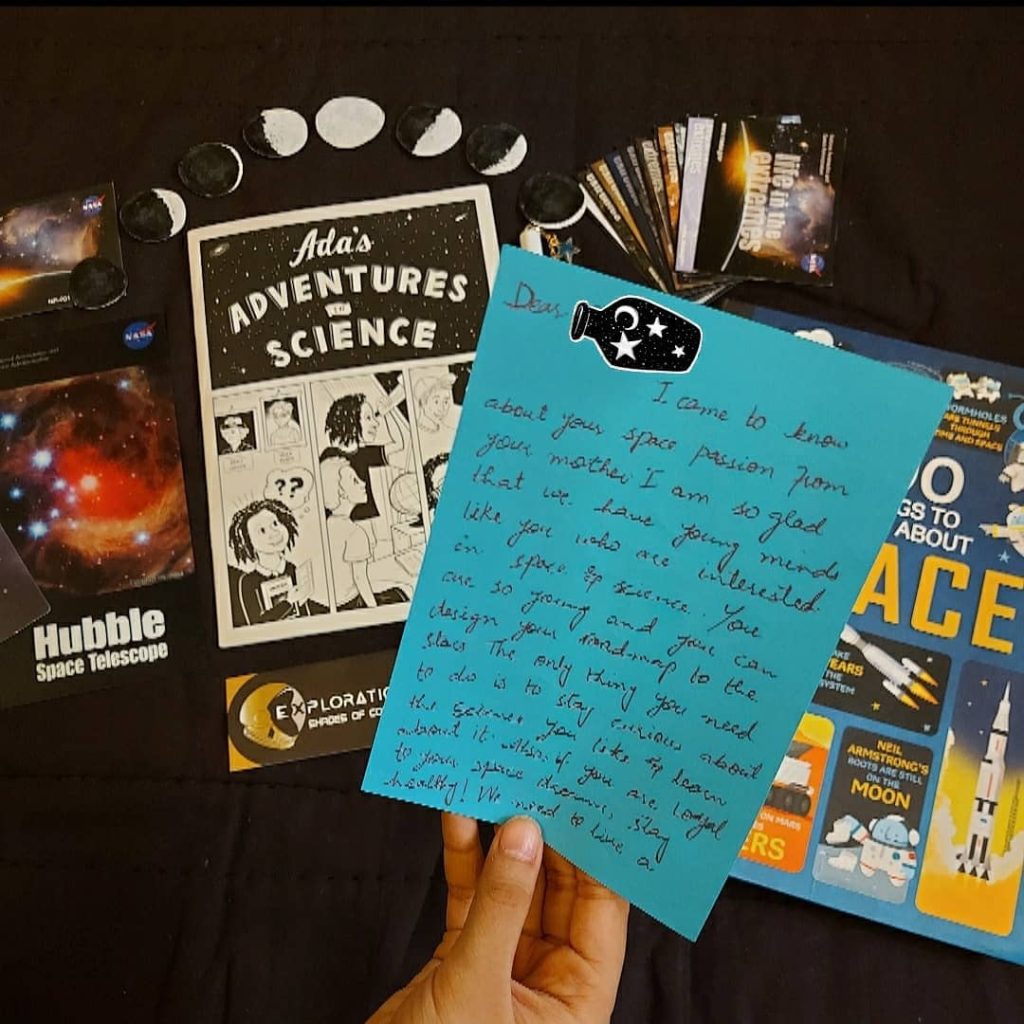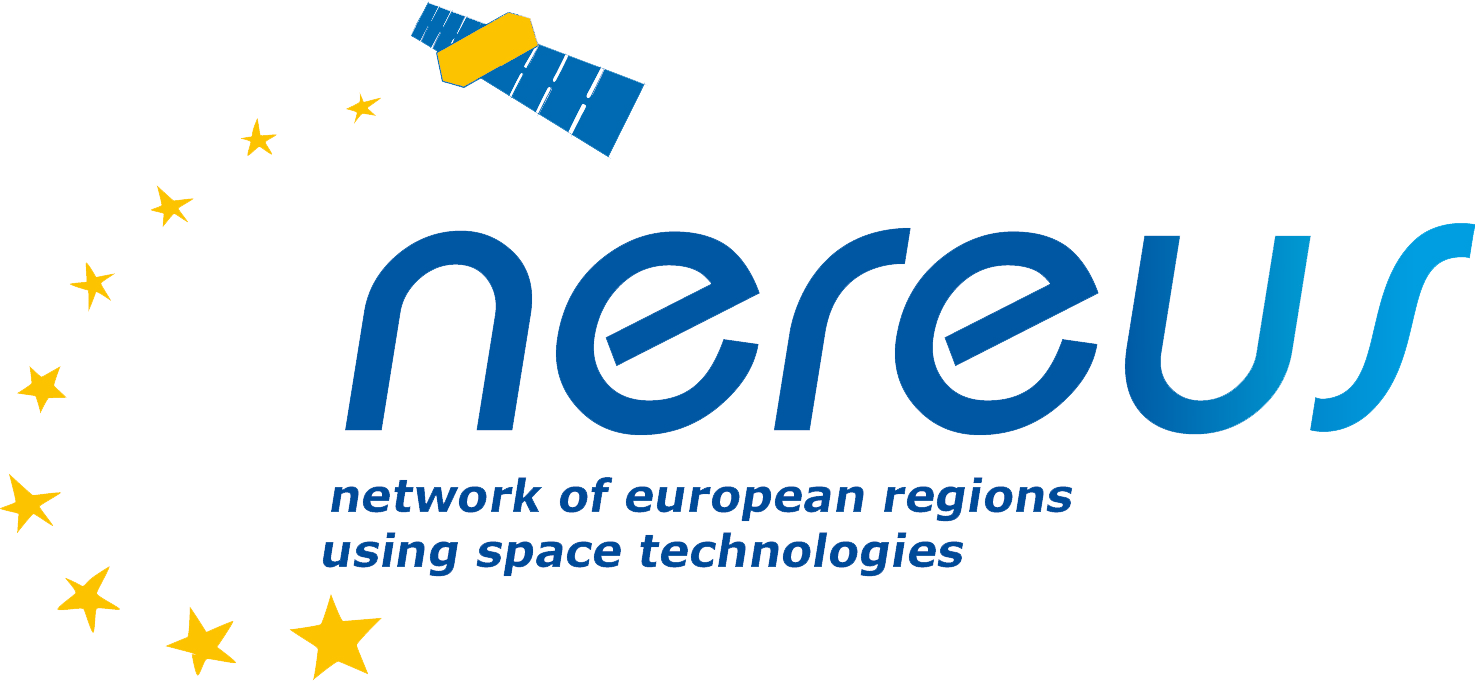Parents must encourage their daughters to become interested in the phenomena of the universe and help us shed light on their mysteries
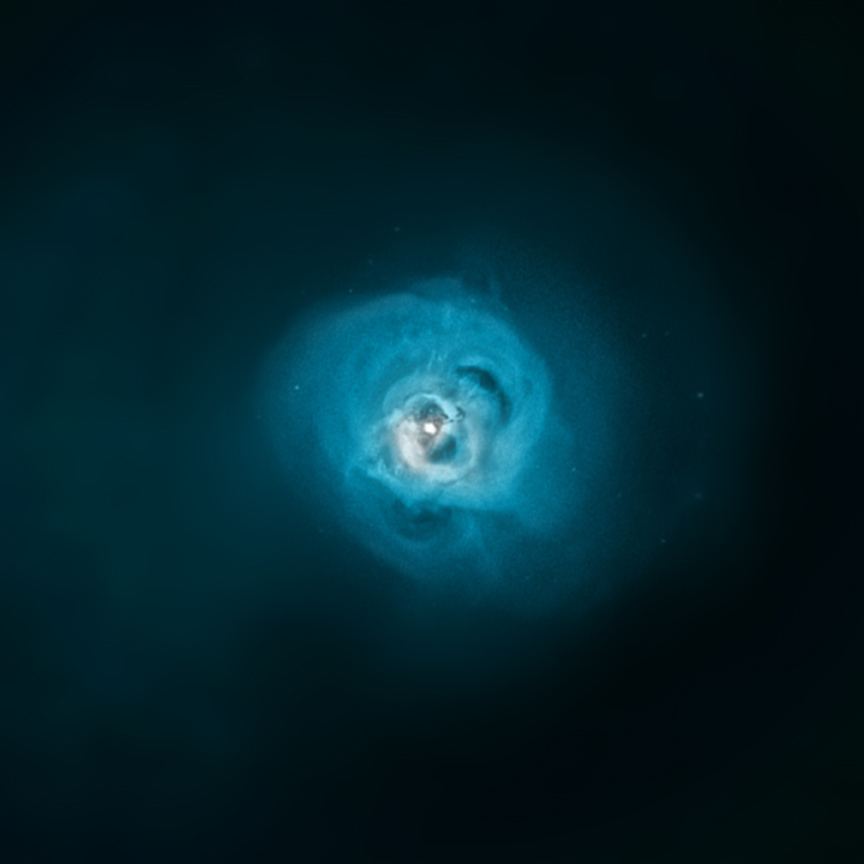
Marie Korsaga, Astrophysicist, Ouagadougou, Burkina Faso
When I arrived at university and signed up for maths and physics, I had to contend with people saying things like “it’ll be much too hard for you, you’ll struggle to make it and you’ll never make a career out of it”. They also said I’d be single all my life because no man would ever want to marry a woman working in the sciences. Luckily, I had parents who understood what I wanted and supported my career choice.
Interview
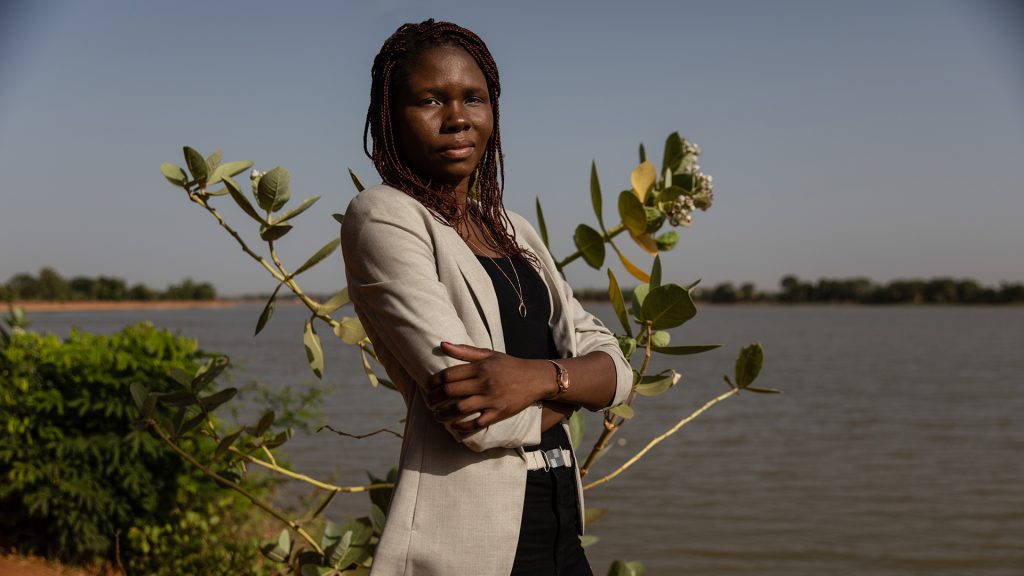
My name is Marie Korsaga, I am a researcher in astrophysics and I live in Burkina Faso. I am indeed one of the first female astrophysicists in West Africa. Until I completed my doctoral thesis in astrophysics, I didn’t know that there had never been a female doctor in astrophysics in West Africa before.
There are more than a dozen male astrophysicists however. This proves the lack of parity between men and women in the sciences. It shows the great inequality in the area and that there is still a long way to go.
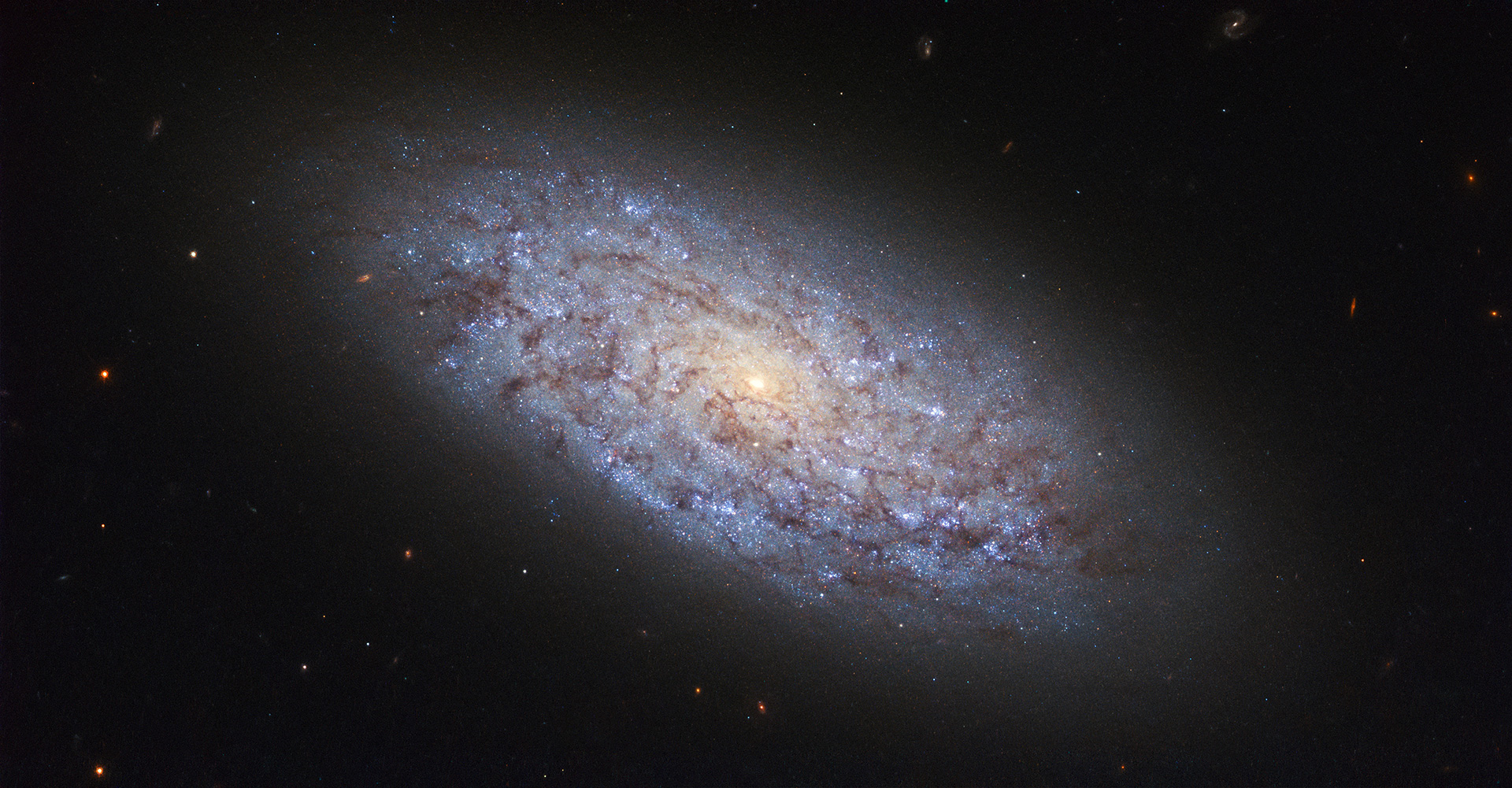
How did I become an astrophysicist? Ever since I was a child, I’ve always been interested in the phenomena of the universe: the appearance of life on Earth, eclipses, the existence of life beyond planet Earth. I was already asking questions but I didn’t know that I could become an astrophysicist and have a career in astrophysics; it was still such an obscure field in Burkina. When I was growing up, I wanted to be a civil engineer, so when I went to university I started studying maths and physics and did two years. I went on to take a degree and masters in physics. To my great surprise, in my degree year, astronomy had just become an option on the curriculum. I instantly signed up for lectures and was fascinated by what I learned and how it answered all the questions I had asked myself since childhood. I also learned that the universe is full of mysteries yet to be elucidated, so I decided to stick with astrophysics.
There are no masters degrees in astrophysics in Burkina, but there are applied physics courses, with an option in astrophysics, so I took it. During my masters I worked on brown dwarfs, entities that are halfway between planets and stars, denser than planets but not as dense as stars. In my masters I learned that the universe is crammed with vast amounts of invisible matter yet to be properly identified, so I decided to begin a doctoral thesis on this dark matter. I opted to study in France and more precisely at the Marseille’s astrophysics laboratory. When I arrived, I had to enrol on a course to attain the level required for astrophysics research and learn how to use the telescopes, etc. Once the course had finished, I embarked on my doctoral thesis in conjunction with Cape Town University, looking at the distribution of dark matter throughout galaxies and the dynamic of galaxies. By studying the distribution of dark matter I sought to better understand how galaxies form and change over time. By distribution, I am referring to baryonic matter, i.e. observable matter and dark matter.
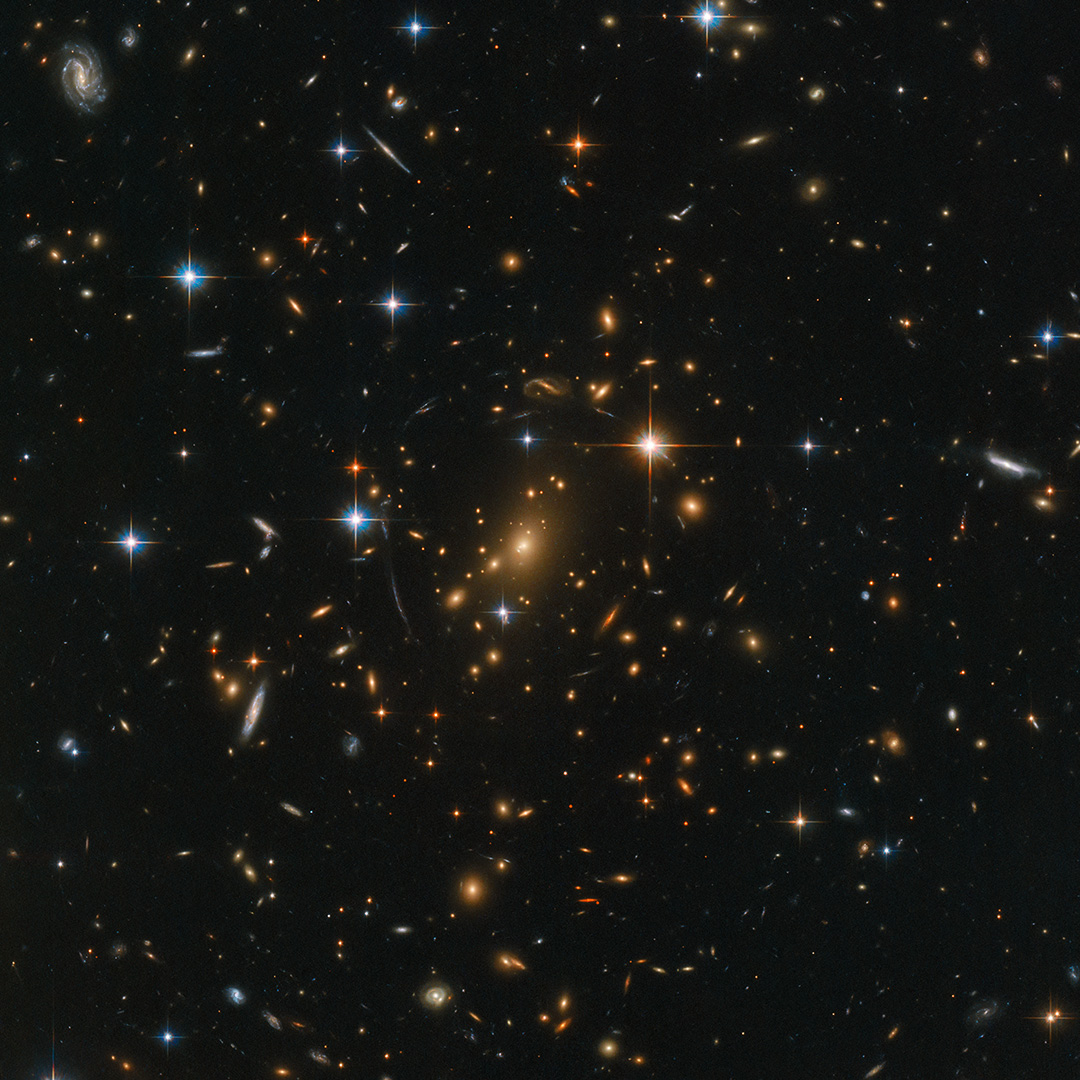
Another issue I’d like to look at is gender stereotypes. In our societies, people tend to say that scientific subjects are more suited to men than women. This creates problems for young women, because even when they do start studying science, they tend to abandon them at the first obstacle they encounter. I think that people need to realise that girls can be as good in science subjects as boys.
I remember when I arrived at university and signed up for maths and physics, I had to contend with people saying things like “it’ll be much too hard for you, you’ll struggle to make it and you’ll never make a career out of it”. They also said I’d be single all my life because no man would ever want to marry a woman working in the sciences. Such talk wasn’t encouraging and was an impediment to me. Luckily, I had parents who understood what I wanted and supported my career choice. This helped me develop the self-confidence I needed to overcome obstacles and, even if at one point in my school career, I did encounter difficulties, I didn’t give in and told myself to keep going.
I’d say that, as in all sciences, astronomy can help promote male-female equality, because with properly implemented equality policies, it’ll open up access for girls and women to the sciences and give them an important role within the disciplines whatever their social background, whether privileged or underprivileged. I think we need to draw up some strong measures and bring in policies for male and female equality in the sciences.
To encourage more women to take up science, first we need to promote parental awareness to support their daughters when they want to study science. It’ll help girls develop self-confidence and confront the obstacles they will encounter during their careers. We have to create opportunities to promote access for girls and women in science subjects, via study and research grants. We have to create a positive environment for female researchers and for women in the sciences in general.
I think that astronomy can reduce inequality more generally, because as well as being a fascinating science, it can be used as a development tool. This is the case of the Astronomy for Development Office, an organisation based in Cape Town in South Africa, whose main objective is to use astronomy as a development tool around the world, focussing especially on developing countries. It also accompanies projects related to education and educational tourism, for example. There is also now a telescope in Sutherland, South Africa which has helped bring science to the area and also created jobs for young people, while boosting the economy and infrastructures in situ.
Often in our universities, women don’t have the right facilities, there aren’t even female toilets. It’s difficult for them, so we have to create the right environment.
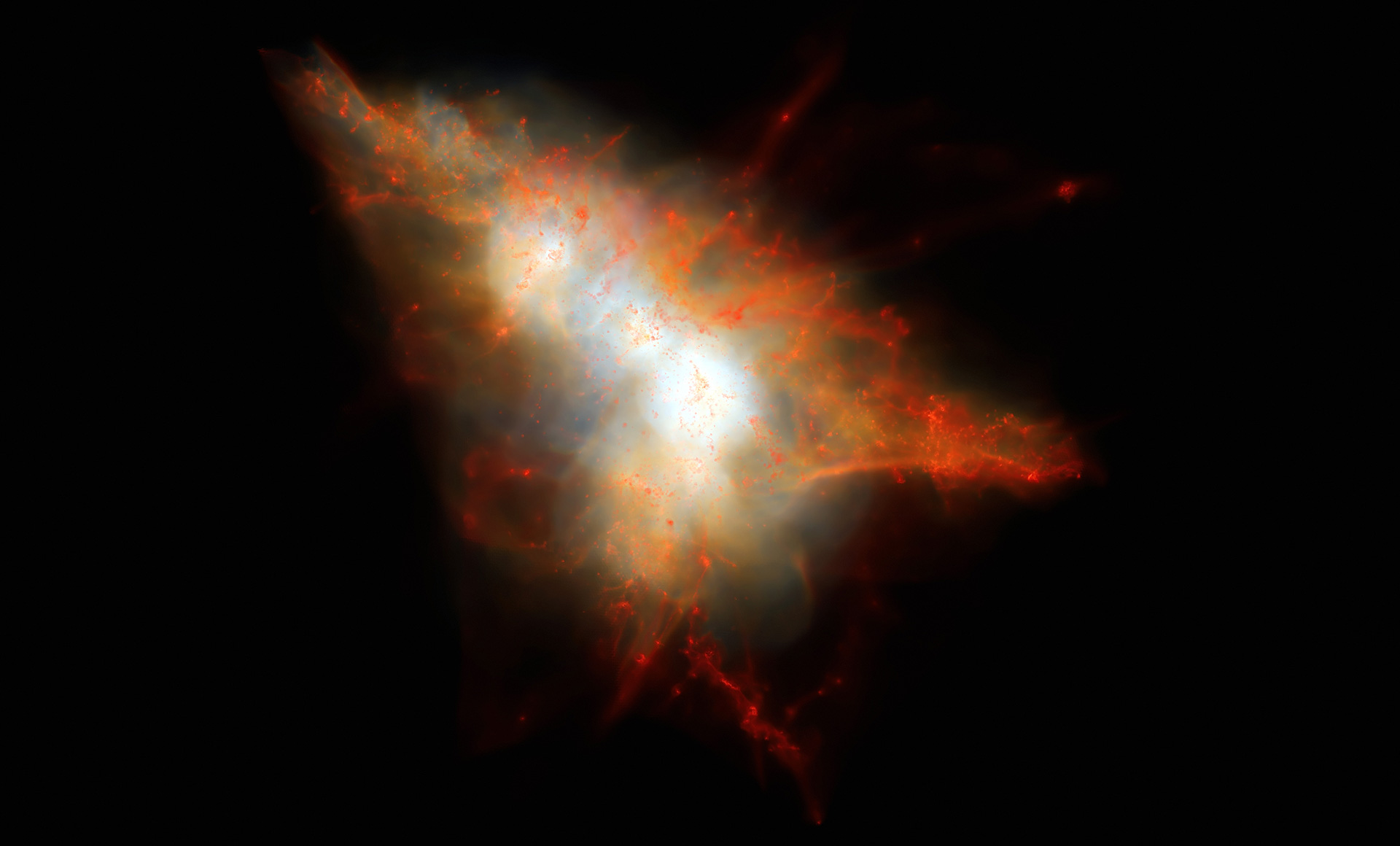
Then there is the SKA radio-telescope soon to be installed in South Africa, one of the world’s biggest astronomy projects, which will help train engineers, IT technicians and many more; developing astronomy will also help develop those sciences with greater demand on the employment market, as well as develop human potential, a source of sustainable development. Developing astronomy also means contributing to the country’s socio-economic development. The message I’d like to pass on to visitors is that astronomy is a fascinating science full of mysteries to be elucidated. If astronomy appeals to you, don’t hold back, go for it! Astronomy is not a field reserved for men; women can also be astronomers. Parents must encourage their daughters to become interested in the phenomena of the universe and its mysteries and help us shed light on them in the future.
Achieve gender equality and empower all women and girls
Check out more
